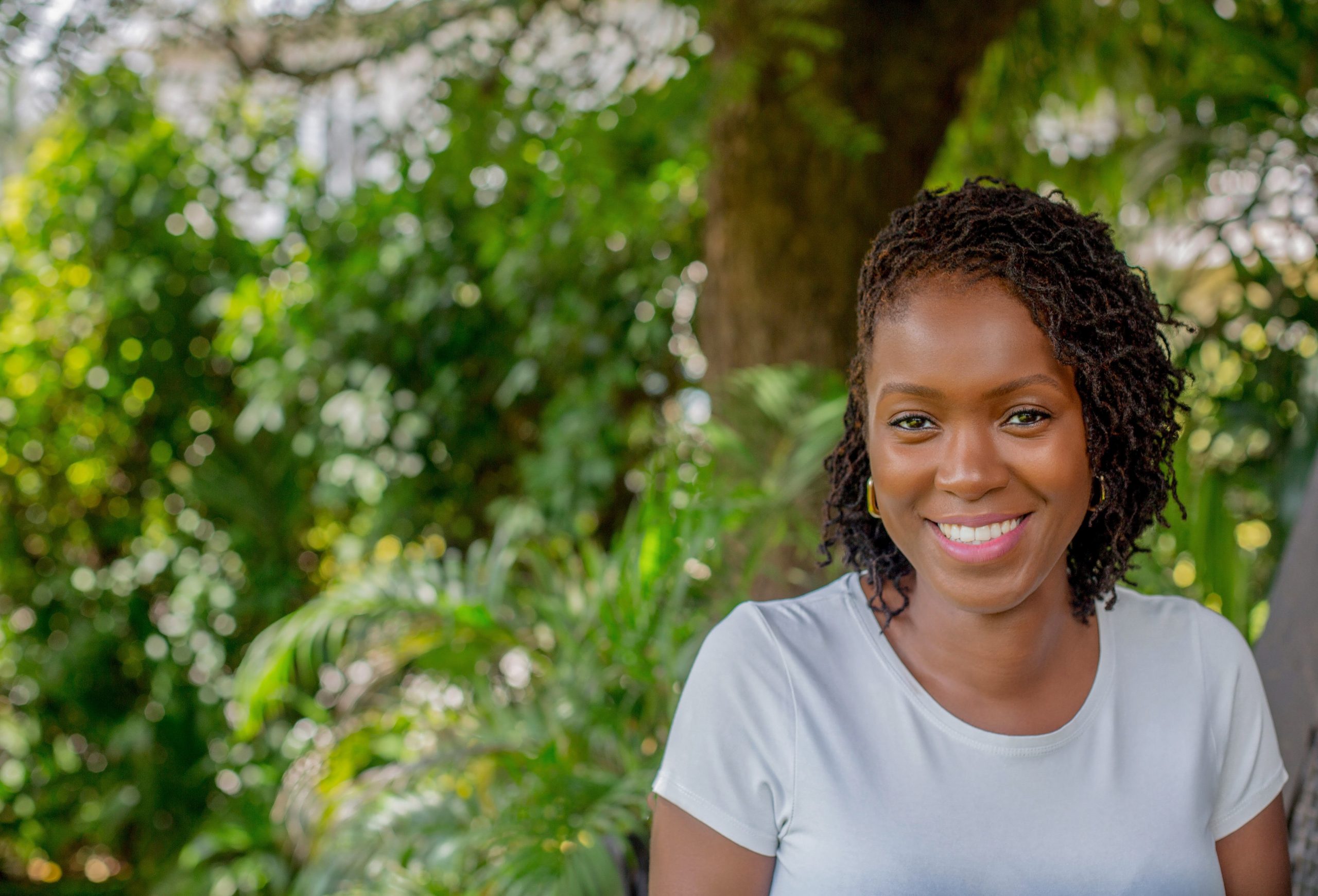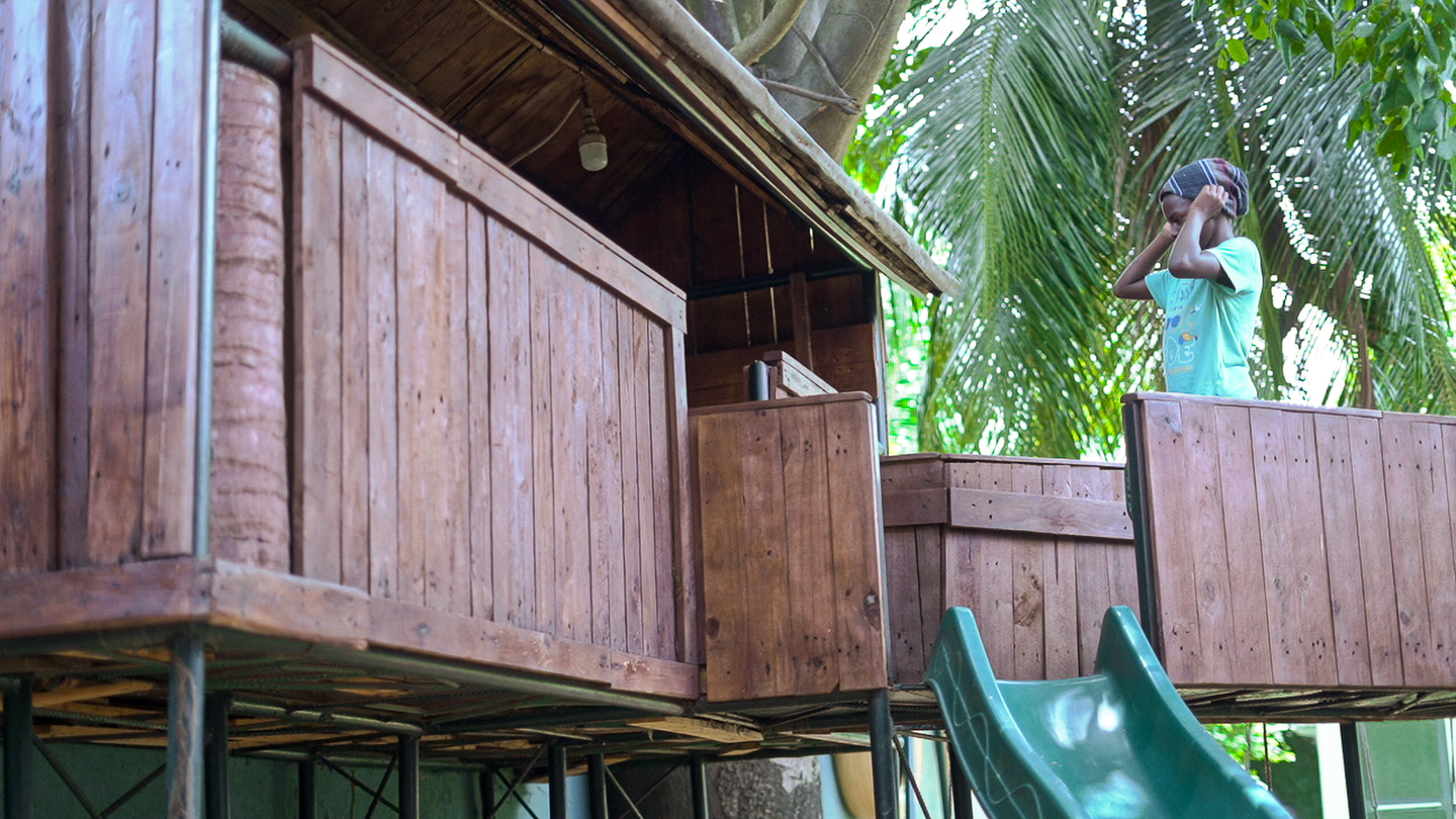In Nigeria, a country of over 220 million, education remains a beacon of hope, offering pathways to opportunity and transformation. Yet, within this vibrant tapestry lies a landscape rife with challenges, where access to quality education remains an elusive dream for many. In the face of such obstacles, innovative thinkers like Damilola Okonkwo have emerged, championing new approaches to education that promise to reshape the Nigerian narrative.

Photo: Damilola Okonkwo, founder of KEY academy
Damilola is leading the charge through KEY (Keep Educating Yourself) academy, which she launched in 2019. The organisation runs Africa’s first 100% project-based school, focusing on 21st-century and core skills through real-world projects. Leveraging a network of “co-learners” (their term for teachers) and subject matter experts, they provide world-class education for children aged 18 months to 18 years old in the heart of Lagos. While their model school helps showcase project-based learning to Nigerian educators and policymakers, their broader mission is to impact millions of children across the entire country. They are codifying their approach into a technology platform, nationwide teacher training, publishing, learning resources, and policy reform to create lasting, multi-generational change.
The catalyst for Damilola’s transition from a decade-long career in Finance (including several years at JP Morgan in London) stemmed from a personal quest to find a transformative education for her children after moving to Lagos in 2013. Dissatisfied with the conventional options available to her, Damilola embarked on a long and winding journey of discovery, exploring innovative learning models from across the world, as well as pre-colonial forms of education in Nigeria and other African countries.
Given her own experience of attending a low-income school in the UK, Damilola knew the importance of dreaming big and achieving goals, but also recognized that socio-economic barriers in Nigeria often prevent the same opportunities. Her vision was not to create an elite institution, but to democratise access to world-class education for millions of Nigerians. After extensive research and planning (and a great deal of apprehension due to not having a background in academia) Damilola launched KEY academy in 2019, determined to transform Nigeria’s educational landscape.
Fighting Adversity with Creativity
Only 6 months after launch, the COVID-19 pandemic swept across the globe, education systems worldwide faced unprecedented challenges, and KEY academy was no exception. As schools in Nigeria closed, and traditional learning methods were disrupted, they had to rapidly adapt to ensure that students continued to receive a high-quality education.
Given KEY academy’s emphasis on hands-on, experiential learning, the transition to virtual classrooms posed unique challenges. Recognising the limitations of traditional online education and concerned about the impact of prolonged screen time, Damilola sought advice from mentors and educational consultants. This led to the creation of “KEY @ Home,” a program designed to train parents as facilitators. The program included practical home-based projects, guidance notes, resource links, and daily 10-minute video calls for children to maintain contact with their educators.

Photo: Student conducting research for their project at KEY academy
This experience became a turning point for KEY academy, as it proved that with proper guidance, project-based learning could be effectively delivered at scale. Understanding that simply building more schools wouldn’t solve Nigeria’s educational challenges, Damilola accelerated the process of codifying its approach into a technology platform, set to launch later this year.
Successfully delivering KEY @ Home was extremely challenging, requiring creativity and resilience from the entire school community. However, the collaboration between educators, parents, and students allowed KEY academy to not only weather the pandemic but also emerged stronger, showcasing the resilience and determination that underpin its educational philosophy.
A Dedicated and Passionate Team
The dedicated educators at KEY academy hail from various regions across Nigeria, each bringing unique perspectives and cultural insights that enrich the learning environment. These passionate individuals undergo rigorous training to equip them with the skills necessary to deliver world-class, project-based education.
KEY academy’s commitment to excellence is evident in their educators’ approach, which goes beyond traditional teaching. The team engages students in hands-on, experiential learning that fosters critical thinking, creativity, and problem-solving. This model ensures that education is not just about rote memorization but about understanding and applying knowledge in real-world contexts.
Photo: KEY academy‘s team of passionate project-based educators
The educators at KEY academy are more than just teachers; they are mentors, facilitators, and guides who are deeply invested in the success of each student. Their diverse backgrounds contribute to a rich, inclusive learning atmosphere where students feel understood and valued.
Whether it’s through leading innovative projects, mentoring students, or collaborating with peers, the educators at KEY academy consistently demonstrate their commitment to delivering a transformative educational experience. Their dedication to nurturing young minds is helping to shape a new generation of thinkers and leaders who will impact Nigeria and beyond.
Looking Back to Look Forward
One of the core pillars of KEY academy’s educational philosophy is rooted in the belief that empowering the next generation requires a deep connection to their cultural heritage. By looking back at pre-colonial forms of education in Nigeria, they tap into the richness of indigenous knowledge systems that have successfully nurtured generations. One such system is the apprenticeship model known as “Igba-Odibo,” prevalent in South Eastern Nigeria, where learning is intrinsically project-based. Here, young people learn by doing, gaining practical skills and knowledge through hands-on experience rather than formal classroom instruction.
Photo: Project-based learning (PBL) school in Lagos, Nigeria
KEY academy recognises that this approach aligns closely with the principles of 21st-century project-based learning, which emphasises practical, real-world problem solving and the application of knowledge. By integrating these indigenous educational practices, KEY academy intends not only to preserve cultural heritage, but also adapt it to meet modern educational demands. The connection to tradition empowers students to understand their history and culture while equipping them with the skills needed to thrive in a globalised world. This blend of ancient wisdom and modern methodology is central to KEY academy’s mission to develop empowered, culturally aware, and innovative future leaders.
Environmental and Financial Sustainability
KEY academy takes a comprehensive approach to sustainability which integrates eco-friendly practices into every facet of its operations. Its school is proudly 100% solar-powered, which not only supports environmental sustainability but also ensures financial stability, given Nigeria’s fragile national electricity grid and the lack of financial support from the government for educational institutions.
The school also employs locally sourced, sustainable materials in the construction and maintenance of its campus. This practice not only supports the local economy but also reduces the carbon footprint associated with transporting materials over long distances, with the use of these materials reflecting a broader commitment to environmental stewardship and community support.

Photo: Learning in nature
KEY academy’s dedication to recycling and upcycling further underscores its commitment to sustainability. The school actively seeks opportunities to recycle and repurpose materials, reducing waste and promoting a circular economy.
Through these practices, KEY academy not only lessens its environmental impact, but also educates students and the community about the importance of sustainability. This will be extremely important as it seeks to roll out its approach and methodologies across Nigeria in urban, semi-urban, and rural areas where there will be a lack of access to power infrastructure and financial resources will be constrained.
Helping Parents Feel Comfortable with Change
As an organisation, they recognise that introducing an unfamiliar educational model can create apprehension among parents, particularly in a system like Project-Based Learning (PBL) that is still relatively new in Nigeria. To support parents in this transition, KEY academy has produced a research-backed report titled “Why should I consider project-based learning for my child?” This report is designed to provide parents with clear, factual insights into what PBL involves, helping to address any concerns or misunderstandings they may have.
The report acts as a comprehensive guide for parents, showcasing the practical benefits of PBL, while also demonstrating its alignment with Nigeria’s own cultural traditions of hands-on, experiential learning. It draws parallels to familiar educational methods, allowing parents to see that PBL is not a foreign concept, but a natural extension of learning by doing. In creating this resource, KEY academy is committed to ensuring that parents are not just informed but empowered, enabling them to actively participate in their child’s learning journey and feel assured about the school’s approach to 21st-century education.
The Journey Ahead
As KEY academy continues to champion transformative education in Nigeria, it looks forward to an exciting new chapter with the opening of its new campus in September 2027. This state-of-the-art facility will house a secondary school equipped with cutting-edge sports and music facilities, reflecting their commitment to holistic student development. Moreover, the campus will support their broader initiatives with training facilities, recording studios, and staff accommodation, and more.
While the challenges of operating in Nigeria are significant, KEY academy remains undeterred. Its success thus far is a testament to its resilience and innovative spirit. The new campus symbolises not just expansion but a deepening of its mission to empower Nigeria’s youth. Against all odds, KEY academy is determined to continue shaping the future of education in Nigeria with courage, creativity, and an unwavering commitment to excellence.
October 2024









